For those looking for options right after securing their high school diploma or those who might be interested in going back to school and learning new trade skills, going to a trade school might be a good option. But what is precisely a trade school? And how does one know that trade school education is the right option?
What is a Trade School?
A trade school is also called a technical school or a vocational school. It is a postsecondary academic institution created to train students for a particular job in skilled trades. What’s great about these trade schools is how it offers hands-on training so students are ready and prepared for actual work in their ideal field.
Trade school programs are entirely concentrated on relevant job training. This differs from a 2-year or 4-year university that usually requires general education courses like Biology or English and instead focuses on hands-on training and practical skills.
A lot of the best online community colleges today provide training for different professions and skilled trades. These include electrician work, licensed practical nursing, and culinary arts. There are even fields where learners can gain the necessary entry-level skills for employment and then later on complete the rest of their training on the job.
For many students, the value of enrolling in trade schools comes from the various differences from a traditional four-year bachelor’s degree. These vocational schools have less-restrictive admission requirements, tend to be shorter, and costs significantly less than a university.

Attending Trade Schools: The Pros
While a bachelor’s degree leads to a variety of educational opportunities and postgraduate careers, this path does not appeal to everybody.
According to NCES (National Center for Education Statistics), 38% of students who started to pursue a bachelor’s degree at a four-year university failed to graduate within six years. This goes to show that not all students thrive in a university or college setting and that prospective learners must consider this fact before they start choosing a program.
So what are the benefits of going to trade school?
Lower Cost
Degree costs generally vary by program and school. However, community colleges and trade schools cost significantly lower than any four-year university. According to CollegeBoard data, the average 2021-2022 annual tuition for public, four-year colleges was $10,740 for in-state students and $27,560 for out-of-state learners. In contrast, the average cost at a two-year vocational or trade school is around $11,300.
Lower costs are also reflected in other key areas. Students enrolled at local community colleges usually no longer pay a school’s room and board charge. The downside for these low costs, however, may be limited student organizations, facilities, and campus entertainment options.
Faster Graduation Timeline
One of the greatest advantages of going to trade schools is the shorter time to complete the program. Most trade school programs run for two years (maximum). Many trade school programs even feature a more straightforward pathway.
Plus, the multiple start dates of trade school programs throughout the year is also one factor that can reduce waiting times for students who missed enrollment dates.
Like most careers that need an associate’s or bachelor’s degree or any form of higher education, vocational programs may need licensure, which means additional training.
Lesser Admission Requirements
For many students, the admission requirements at most four-year universities make it tougher for them to pursue a college degree. But for trade schools, admission policies are more lenient. This provides an easier postsecondary pathway for students, no matter what their high school achievements are.
A trade school program in some technical schools may also accept student applicants with low GPAs, or even those without a high school diploma. These trade schools are also not keen on the experience or extracurricular achievements of incoming students.
Smaller Class Sizes
Trade schools and community colleges have small class sizes compared to four-year universities– especially at larger public universities. Because trade schools have fewer courses in general education, classes usually include only students who are pursuing the same trade programs. In trade school education, students join a program and have the same group of people in each class they go through.
With small class sizes, students in vocational schools have more inclusive discussions and tend to have greater and better access to their instructors. When students are surrounded by same-minded students, studying becomes less daunting, thus helping them adjust and settle in more easily.
Job Assistance
Both trade school education and traditional four-year school feature career service departments. But in trade schools, support is more involved. Smaller groups and schools allow for more one-on-one sessions with career services professionals. Career training and focused programs can also help streamline the whole job assistance process since students tend to become eligible for very specific trade jobs. Plus, there are schools with partnerships with local businesses.
Real-World Experience
Since vocational training has limited theory classes and general education courses, trade schools focus more on job preparation and practical training. Vocational programs usually include learn-by-doing projects and live demonstrations. There are even programs that feature on-the-job training too. This gives students the advantage of gaining professional training and experience at the same time.
Preparation for In-Demand Careers
Not everyone is aware of how lucrative trade jobs are. In fact, this is an often overlooked advantage of enrolling in a trade school. Vocational schools are designed to prepare graduates to join some of the most reliable and best trade jobs available. These careers include high-paying trade jobs, essential professions, and fast-growing technical roles.
At present, some of the best trade school careers include skilled technician roles like diagnostic medical sonographer, air traffic controller, wind turbine technician, or solar photovoltaic installer. Essential trade school jobs, like technicians in electrical systems, plumbers, or ironworkers, are also high in demand through the current economy’s ebbs and flows.
Attending Trade Schools: The Cons
While there are a lot of advantages to attending trade schools, there are also reasons why vocational schools are not-so-good options.
Limited Career Growth
A trade job pays well. However, workers usually end up facing limited options for career development. Supervisory and managerial jobs usually require a bachelor’s degree; thus, advancing in a trade career is difficult.
Plus, since trade schools generally prepare students for a particular occupation, this will limit future job opportunities for workers in the trade industry. Graduates from trade school education may find it extra challenging to correlate their skills from one industry to the next.
Limited School Options
While there are numerous four-year universities scattered across the US, vocational schools and specialized training programs are hard to find. Sometimes, students have to relocate just to study at a vocational school that offers the specific program they’re interested in.
Limited Financial Options
Students in trade school programs usually have limited financial aid options. While traditional university students are easily given access to scholarships, grants, student loans, and other forms of financial aid, vocational schools with trade school programs have fewer financing opportunities.
Intense Class Competition
When trade school students complete their programs simultaneously, it might be tough to land apprenticeships, on-the-job training, or jobs in their area. Graduates in the same field will find it hard to secure trade jobs considering these fresh graduates can potentially saturate the local market.
When this happens, competition for entry-level jobs becomes higher and tougher. Thus, before you choose a suitable trade school program, do your research about the projected job growth rate for possible careers in the field.
Rigorous Schedule
Because trade school programs have an accelerated pace, students can graduate and become job-eligible quickly. However, the rigorous schedules that go for an accelerated program will mean that students won’t have much free time while they’re in school. This particular disadvantage to a trade school will sometimes outweigh the chances of entering the workplace quickly.
The Top Highest-Paying Trade Jobs
A trade school career can be as lucrative and as profitable as an associate degree program or post-college degree role. If you plan on pursuing a specialty field, here are seven of the highest-paying and best trade jobs to consider.
Construction Managers
Construction managers are some of the highest-paying trade jobs today. With a median annual salary of $97,180, these professionals oversee commercial, public, industrial, or residential construction projects. Also called construction and building inspectors, project managers, or general contractors, they supervise construction projects from start to finish.
Some of their major responsibilities include scheduling subcontractors, preparing estimates, responding to construction problems, and reporting directly to clients. In construction management, one has to have impeccable business, leadership, communications, and technical skills.
Most construction managers are self-employed, while the rest work in civil and heavy engineering, nonresidential building, or residential building construction industries. Construction management trade school degrees will prepare graduates to properly manage and deal with construction workers, understand blueprints, and prepare budgets and other technical documents.
To become a construction manager, one must have an associate degree and on-the-job training experience. You can even increase your earning potential and qualify to work on bigger projects by earning a bachelor’s degree. It’s also wise to obtain a professional certification from the American Institute of Contractors or the Construction Management Association of America.
Escalator and Elevator Installers (and Repairers)
With only a high school diploma requirement (or equivalent), these workers fix, maintain, and install elevators and escalators. Some of their job duties include replacing faulty parts, reading blueprints, conducting safety inspections, and testing equipment. Escalator and elevator installers usually specialize in maintenance, installation, and repair work. They must have troubleshooting and mechanical skills, physical stamina and strength, and the capacity to work at height.
Job opportunities like this usually begin with a four-year apprenticeship with an employer, a union, or an industry group. Apprentices will learn about electrical systems, electrical theories, blueprint reading, escalator and elevator parts, and safety. Most states require these professionals to hold a license. They must also undergo regular training to be able to keep up with the industry’s technology changes.
For career advancement, a professional certification earned through the National Association of Elevator Safety Authorities or the National Association of Elevator Contractors is required. The median annual salary of escalator and elevator installers and repairers is $88,540 and has a 7% job outlook increase between 2019 and 2029.
Electricians
With a median annual salary of $56,900, electricians install, maintain, and fix electrical power, communication, lighting, and control systems in buildings. This highly skilled trade field entails trainees to complete at least four years of apprenticeship. Others even join technical schools and enroll in an associate degree program or any related technical program that will cover basic circuitry, electrical systems, safety, or electrical information, which is then followed by a shorter apprenticeship.
Being one of the most challenging but highest paying trades, electricians are required to complete a trade program where they will gain skills in soldering, fire alarm systems, electrical code requirement, and blueprint reading to qualify them to perform routine maintenance and general electrical jobs. Contractor associations and unions normally provide electrician apprenticeships.
Construction and Building Inspectors
Those who love to join the construction industry without an engineering degree can go for vocational training and become construction and building inspectors. Considered one of the highest-paying trade jobs, these professionals not only examine electrical systems but also heating/air conditioning systems, and even plumbing. They can also approve building plans, inspect electrical and plumbing systems for problems, and issue notices for non-compliant buildings.
Other job duties of construction and building inspectors include working for state or local government engineering services, inspecting electrical, building plans, and homes, or they can run their own inspection business.
Radiation Therapists
The US Bureau of Labor Statistics indicated that the mean annual wage of radiation therapists is $94,000. These professionals provide radiation therapy to people suffering from cancer and other illnesses. They use machines to treat patients, explain treatment plans, keep records, and monitor patients for any adverse reactions.
Radiation therapists need an associate degree. They can work in doctor’s offices, hospitals, and outpatient care centers. To become a part of this high-paying job, you must have interpersonal and technical skills, close attention to detail, and strong physical stamina.
In trade schools, students learn about treatment planning, pathology, radiation physics, and oncology. Just like the diagnostic medical sonographer, professionals in this field must join a radiation therapy associate program that will teach them how to navigate medical machinery. They should also have extensive hands-on experience in clinical settings.
Being one of the highest-paid trade jobs, most states require a license for radiation therapists. To obtain this license, students must finish an accredited radiation therapy program and complete a national certification exam.
Nuclear Medicine Technologists
The required education for nuclear medicine technologists is an associate degree. These professionals work in medical labs, physician’s offices, hospitals, and outpatient care centers. With a median annual salary of $79,590, these therapists support doctors in preparing and supervising radiopharmaceutical drugs. Job duties of this high-paying job include operating imagery equipment, explaining procedures to patients, keeping safety standards, and keeping patient records.
Students in nuclear medicine technology gain clinical, academic, and laboratory experience in technical schools. They will learn about technical skills, regulatory compliance, and radiation protection standards surrounding the field. Although this field needs an associate degree program, most nuclear medicine techs earn a bachelor’s degree. Some are even required to graduate from a program duly accredited by the Joint Review Committee on Education Programs.
Dental Hygienists
With a median annual salary of $77,090, a dental hygienist is one of the highest-paying trade jobs today. They work under the helm of a dentist and look out for potential dental diseases in patients and provide preventive care, too. Dental hygienists use different tools to remove plaque, take X-rays, inform patients about oral hygiene, and apply fluoride. These professionals usually work in private dental offices, public health facilities, or community health clinics.
A dental hygienist trade school takes about three years to complete, including classroom, laboratory, and clinical instruction. This vocational or trade school program also requires students to take classes in physiology, anatomy, radiography, periodontics, and patient management.
Choosing Trade Schools: Major Factors to Consider
Choosing a vocational education is a great way to kick off your career as efficiently and quickly as possible. But with so many available vocational schools today offering different trade school programs, how do you find the right one to help you with the technical skills needed for trade jobs? Which certificate programs can give you the critical thinking skills required by most careers for job security in the future?
Choose the best trade schools for you with these tips.
Talk to Instructors
In vocational education, the best way to learn more about the field is to talk to instructors. Whether you want to be a licensed practical nurse, an air traffic controller, or a wizard at computer programming, meeting instructors while enrolled in certificate programs or an associate or bachelor’s degree is a good idea.
For instance, if you’re touring a vocational school, check if you can meet with the program’s instructors. They’re the perfect people to help you understand anything and everything about trade schools– from advising the best trade programs to sharing what the best trade school careers are and letting you understand the potential careers and materials covered in the classes.
Having instructors in technical colleges that you can trust will allow you to find the right program that will lead you to the best trade jobs in the future. The instructors can help you decide whether or not vocational programs are suitable for you.
When visiting a trade school campus, meet with instructors in the department you’re interested in. Talking to them will give you a better idea of what skilled trade or which certificate program is ideal. Discuss what the program looks like, its job security, job titles, position requirements after graduation, or position responsibilities. These advisors have a good grasp of any training, certificate program continuing education, or other certifications that may be needed after graduation.
Check the Trade Programs Offered
It’s important to check the trade programs offered at the specific technical school. There are many trade school programs offering almost all trade courses, while there are others that only offer a few popular options like electrical training and HVAC technician training.
You need to make sure that your chosen technical school doesn’t limit your schooling choices. The more options for the types of trades you plan, the more this will allow you to further explore the different trade school programs before you finally settle on a career choice.
Compare Trade School Costs
Schools are expensive, considering this will prepare students for lucrative careers in the future. However, enrolling in vocational schools can help students save thousands of dollars compared to traditional bachelor’s degree schools. Whether you are enrolled in the highest-paying trade school, the cost is still way lower than the cost of big universities.
The cost of a vocational school, whether for an associate degree or certificate program, will largely depend on the program of choice. Still, students can save money in trade schools and can immediately apply for a trade job in an entry-level capacity a lot earlier than with a bachelor’s degree.
Although a trade school degree is less expensive, the cost generally varies between each school. That is why it’s essential to compare school costs before choosing a school to attend. Plus, many vocational schools offer financial aid options. Those who cannot afford continuing education can apply for state or federal financial aid programs to help minimize the financial burden.
Understand the Coursework
Just because you prefer going to a trade school doesn’t mean it has minimal program coursework enough to land you a good trade job. Before choosing which trade school to attend, it’s best to first understand the coursework you will be doing. By having a glimpse of your coursework, you will have a clearer understanding of what every school day is like by the time you start trade school. The best trade jobs start with students understanding what their program is all about.
You can learn more about a program’s coursework when you meet with academic mentors who can provide you with a more defined and clear understanding of specific trade school classes.
Check the School’s Student Support Services
Checking on the school’s student support services is something most often overlooked not only when scouting for a trade school but also when narrowing down options for an associate or bachelor’s degree institution. A school must have student support services to aid students in their professional development and help them progress through their schooling. It also helps to go to trade school more smoothly.
In case students have problems with classwork, instructors, and the like, student support services can help. Schools that are focused on their students’ success will have staff on board– like academic mentors or student success partners, to help everybody succeed. Before narrowing down your options for the best trade schools, make sure you ask about the type of student support services each school offers.
Accreditation
It’s also just equally important to go to an accredited trade school. An accredited trade school means that the trade school programs offered are reviewed by industry experts and that the school has met the standards set by the accreditor.
Accredited trade schools offer different services to students like resumé support, job security, job placement assistance, interview techniques, employer referrals/interviews, and tutoring.
Choosing the Right Trade Program for You
Although attending a traditional four-year university is most common among recent high school graduates, going for an alternative career path might sometimes be a more fulfilling decision.
If you wish to become highly skilled in a particular field, enrolling in a trade school is a wise move. In trade schools, not only will you spend less time going to school, but you can get into your desired trade field sooner and start to earn a steady income.
But how do you decide which trade program to pursue? Here are some helpful tips.
Think About Your Interests
One of the many advantages of going to a trade job is that you can earn your own salary out of pursuing your interests. For example:
- If you love working with your hands, becoming a woodworker is a wise move.
- If you find automobiles fascinating, getting a mechanic technical diploma will do you good.
- If you find interest in clean energy, a wind turbine technician is a good trade career path.
Find time to evaluate the things that you find interesting. From there, do some research to find a trade career that will align with your interests.
Determine Your Talents
Trade jobs will require you to be highly knowledgeable and skilled in one area of specialization. While you can develop and learn multiple skills during your on-the-job training and education, it’s best to go for a career for which you are already prepared. If you are passionate about cooking, you can become a chef. The key is to identify your already existing talents and continue to hone and improve them.
Sit Down and Talk to a Career Counselor
For high school students, take advantage of your school counselor and discuss your career options. These professionals can help you analyze possible career options, understand what you must do to become eligible for a specific occupation and learn about the requirements for different programs.
The 20 Most Affordable Trade Career Degree Programs
Wallace Community College-Dothan
Dothan, Alabama
Student to Faculty Ratio: 17:1
Wallace Community College is formally called George C. Wallace Community College, named after the father of the Alabama governor. This 2-year public community college is based in Dothan, Alabama. It offers programs that lead toward an associate degree or certificate program.
Wallace Community College was one of the pioneering trade schools in Alabama. It is accredited by the SACSCOC-Southern Association of Colleges & Schools Commission on Colleges. It is known for its student body diversity. Following the merger of its Stark campus in Eufaula, Alabama, it has since established itself as an impressive community college. The school also has fast-track workforce development programs that improve the skills of professionals with employment.
The trade programs offered at Wallace Community College include:
- Certified Indoor Air Quality Manager
- Certified Indoor Environmentalist Prep
- CNC Machinist
- Electrical Technician
- Foundations of Plumbing
- HVAC/R Certified Technician
- HVAC/R Simulations for Field Technicians
- Maintenance Technician
- Quality Inspector
- Residential Electrician
- Tool and Die Maker
- Welder Technician
Net Price:
$125 per semester hour (in-state); $250 (out-of-state)
Mt. San Antonio College
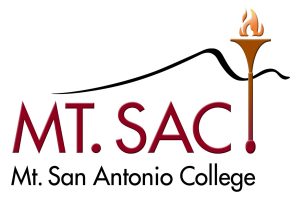
Walnut, California
Student to Faculty Ratio: 24:1
Mt. San Antonio College, located in Walnut, California, is a public community college that offers 260 degree and certificate programs. It also has 25 support programs and more than 50 athletic programs and student clubs, including tutoring and counseling.
Mt. SAC offers an aircraft maintenance and aviation program. Through this program, the school offers Associate Degree programs in both Aviation Science and Commercial Flight. It also partners with four-year schools to which associate degree graduate students can arrange to complete their bachelor’s degrees.
Some of Mt. San Antonio College Trade School concentrations include:
- Airline/Commercial/Professional Pilot and Flight Crew
- Substance Abuse/Addiction Counseling
- Psychiatric/Mental Health Services Technician
- Air Traffic Controller
- General Drafting and Design Technology
- HVAC and Refrigeration Engineering Technology
- General Electrical/Electronics Equipment Installation Repair
- Radiologic Technology
- Laboratory Technician
- Respiratory Care Therapy
Mt. San Antonio College offers a lot of trade degrees, making it easier to find which one suits every student’s needs.
Net Price:
$46 per unit (in-state); $311 per unit (out-of-state)
Lake Land College
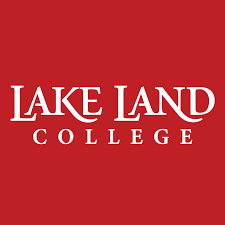
Mattoon, Illinois
Student-to-Faculty Ratio: 19:1
Located in Mattoon, Illinois, Lake Land College is a public community college founded in 1966. The highest degree offered at Lake Land College is an associate degree. The school creates and continuously improves an accessible, affordable, and effective learning environment for the educational needs of the diverse communities they serve.
Lake Land College holds so many advantages over traditional four-year universities, including smaller class sizes, lower costs, and a greater degree of flexibility. Students under the school’s transfer programs are given specialized, low-cost alternatives to their first two years of academic studies.
Some students are also given a chance to join in institutional research and take advantage of the Lack Land College Foundation, a non-profit organization dedicated to the development of educational advancement, charitable programs, and scholarships.
With a wide range of certificate programs, degrees, and workforce development programs, Lake Land College is acknowledged by Aspen Institute in the top 10 percent of all the community colleges nationwide.
Lake Land College offers 150 academic majors. Some of its high-demand programs include:
- Architecture and Construction
- Automotive Technology
- Computer and Information Technology
- Court Reporting
- Criminal Justice
- Medical Assistant
- Office Professionals
- Paramedical Services
Net Price:
$3,315 (in-state), $8,103.9 (out-of-state)
Elgin Community College

Elgin, Illinois
Student-to-Faculty Ratio: 20:1
Elgin Community College is a public community college located in Elgin, Illinois. It offers high-quality technical, adult education, career, and distance learning at the associate degree level. This small community college offers general educational programs, courses in liberal arts and sciences, adult education courses, and courses in semi-technical, occupational, and technical fields that lead directly to employment.
ECC also offers university transfer options that include Associate Degree programs in Arts, Engineering Science, Fine Arts, Liberal Studies, and Science. Its Career and Technical Education programs include more than 130 certificate programs and degrees, including an Associate of Applied Science degree. It also offers high school equivalency instruction and testing, adult and basin education, citizenship preparation, English as a second language (ESL), and workforce development for employers.
Elgin Community College understands the importance of students training for careers they have always wanted. Just like most vocational schools, ECC ensures that its career and technical education (CTE) programs will equip students with the knowledge, skills, and training they need to become successful in a high-demand career field.
Of the school’s total population, 28% of its students are enrolled in career and technical training programs. From accounting to culinary arts and hospitality to human services and modern languages, students have so many CTE programs to choose from.
Net Price:
$132 per credit hour (in-district); $297 per credit hour (out-of-district)
Southwest Mississippi Community College

Summit, Mississippi
Student-to-Faculty Ratio: 24:1
Southwest Mississippi Community College in Summit, Mississippi, was originally an agricultural high school called Pike County Agricultural High School. Later on, SMCC started to incorporate college work into its curriculum, and eventually, it became a junior college. Fifty-four years after it opened its doors, the name of the school was changed to Southwest Mississippi Community College in 1988.
SMCC provides technical training, academics, and continuing education, meeting the various needs of the student population at a very reasonable cost. This vocational school strongly promotes economic development and community services through workforce and consultative training. It is accredited by the SACSCOC.
SMCC offers career technical programs for students who are gearing up to land employment after completing the program. These programs are offered with financial assistance through WIOA (Workforce Investment and Opportunity Act), a type of federal grant available for eligible students who are joining in Career-Technical Training programs. Below are the trade programs available at Southwest Mississippi Community College.
- Accounting Technology
- Automotive Technology
- Business and Marketing Management Technology
- Commercial Truck Driving
- Computer Networking Technology
- Cosmetology
- Diesel Equipment Technology
- Early Childhood Education Technology
- Electrical Technology
- Health Information Technology
- Heating and Air Conditioning Technology
- Medical Office Technology
- Office Management Technology
- Oil and Gas Production Technology
- Residential Carpentry
- Welding and Cutting-Associates
- Welding and Cutting-Certificate
- Well Construction Technology
- Electrical Lineman Technology
Net Price:
$1,890 (12-19 semester hours, in-state), $3,240 (12-19 semester hours, out-of-state)
Lincoln Land Community College

Springfield, Illinois
Student-to-Faculty Ratio: 17:1
Located in Springfield, Illinois, Lincoln Land Community College is a public community college, with extended branches in different sites, including Jacksonville, Beardstown, Litchfield, and Taylorville, Illinois. Through its more than 60 programs, students find encouragement and support throughout their educational journey.
Lincoln Land Community College offers transfer educational programs, career training programs, and affordable education to more than 12,000 students. This is partly because of its 100% acceptance rate, with 23% of enrollees attending career training programs. The school also offers evening and online courses designed for working students. Because the strongly believes in the efficiency of keeping a small classroom, its student-to-faculty ratio is just 17:1.
Student diversity and engagement play a huge part in Lincoln’s overall mission. Holding events, like the multicultural fest, is one way of welcoming students and introducing campus resources to individuals who wish to support crafting their environment.
LLCC has a variety of training options, including credited certificate programs, industry certifications, and associate of applied science degrees. The areas of study included in the workforce training programs offered by LLCC are a lot. Below is a list by department. Students can simply choose a program to find out more about their job outlook, available training options, and how to get started.
- Workforce Institute
- Arts and Communication
- Health Professions
- LLCC-Medical District
- Math and Computer Science
- Natural and Agricultural Sciences
- Social Sciences and Business
Net Price:
$137 per credit hour (in-state), $274 per credit hour (out-of-state)
Thaddeus Stevens College of Technology

Lancaster, Pennsylvania
Student-Faculty Ratio: 16:1
Thaddeus Stevens College of Technology offers several degrees and certificate programs. Its 24 academic programs are scattered across 19 buildings on its 32.5-acre of land. Considered one of the best technical colleges, this school is home to more than 1,300 students, and everybody enjoys resources to support their ultimate educational goals.
Some of the school’s most popular programs include computer systems repair, machine and metal working, and automotive mechanics. Since the school’s inception, the mission and goal of Steven’s College have been to provide educational opportunities for underrepresented students to learn skills that lead to immediate employment.
Thaddeus Steven’s College of Technology offers 24 technical-based majors designed to prepare and educate students for in-demand careers in the future. These majors are:
- Architectural Technology
- Automotive Technology
- Business Administration
- Cabinet Making and Wood Technology
- Carpentry Technology
- Civil Engineering Construction Technology
- Collision Repair Technology
- Computer Integrated Machining
- Computer and Network Systems Administration
- Computer Software Engineering Technology
- Diesel Technology
- Electrical Technology
- Electro-Mechanical Technology (Mechatronics)
- Electronic Engineering Technology
- Engineering CAD Technology
- Graphic Communication and Printing Technology
- HVAC- Refrigeration
- Masonry Construction Technology
- Mechanical Engineering Technology
- Metals Fabrication and Welding Technology
- Plumbing Technology
- Residential Remodelling Technology
- Water and Environmental Technology
- Welding Technology
Thaddeus Steven’s College of Technology is accredited by the Middle States Commission on Higher Education. Students are also required to be residents of Pennsylvania and have established residency for at least a year before applying. Only military veterans are exempted from this residency requirement.
Net Price:
$4,500 per semester for 12 credits (or $308 per credit hour)
Eastern Arizona College
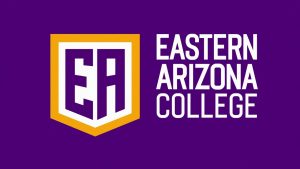
Graham County, Arizona
Student-to-Faculty Ratio: 17:1
Eastern Arizona College is a community college based in Graham County, Arizona. Its main campus is in Thatcher, while its satellite locations are in Greenly County and Gila County. EAC is the oldest community college in entire Arizona and the only community college in the state with a marching band.
Eastern Arizona College is known for its smaller tuition, costing 75% less than any Arizona university. Students are handled by university-level professors while earning an associate degree or industry certificate programs.
EAC has 36 degrees, certificates and career, and technical programs. Its most popular trade programs are HVAC and Refrigeration Engineering Technician, Business Support Services, and Liberal Arts and Humanities.
What’s amazing about the school is that students need not wait until they earn their high school diploma to start earning credits. Eastern Arizona College has partnered with area high schools to offer students the chance to earn skills that allow them to join the workforce right out of high school.
Students can earn their general education requirements in one of Eastern Arizona College’s transfer-focused associate degree programs. The career-focused associate degree and certificate programs are designed to prepare students for the highest-paying trade jobs in two years or less.
Some of EAC trade school programs include:
- Welding
- Sports Medicine
- Paramedicine
- Nursing
- Media Communications
- HVAC-R
- Graphic Design
- Electrical Instrumentation
- Early Childhood Education
- Cosmetology
- Computers
- CADD Drafting
- Automotive
- Allied Health
- Administration Justice
- Advanced Manufacturing
EAC also offers 8-degree programs that are offered in online formats. And since this is a free-form college, the school doesn’t require SAT/ACT scores. They also offer evening courses and a variety of financial options in the form of financial aid or scholarships.
Net Price:
$3,895 (in-state); $4,592 (out-of-state)
Oakton Community College
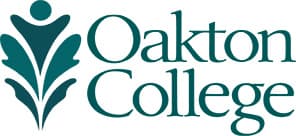
Des Plaines, Illinois
Student-to-Faculty Ratio: 16:1
If you are looking for the best trade school to help you land the best trade job, take advantage of what Oakton Community College has to offer. Based in Des Plaines, Illinois, this community college boasts transfer partnerships, internship initiatives, a music department, and so much more.
Oakton College offers an engaging campus environment packed with a very diverse student body. It offers different degrees, including nursing, accounting technician, liberal arts, and bookkeeping. The school also has a wide range of scholarships and financial aid for new and continuing students.
Some of the trade and certificate programs Oakton Community College offerings include:
- Automotive Technology
- Basic Early Childhood Education Certificate
- CAD Interior Design Certificate
- Computer Programming Certificate Programs
- Electronics Technology/Electrical Systems Certificate
For placement purposes, some students must provide their SAT/ACT scores, although this will also depend on the program they intend to pursue.
Net Price:
$136.25 per credit hour (in-state), $439 per credit hour (out-of-state), $136.25 per credit hour (online; hybrid)
John Wood Community College
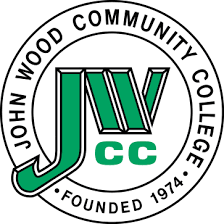
Quincy, Illinois
Student-to-Faculty Ratio: 13:1
Located in Quincy, Illinois, John Wood Community College is a public community school. It is one of the 48 two-year, open-admission colleges of the Illinois Community College System, as per the Illinois Articulation Initiative (IAI), a statewide transfer agreement to ensure general education crews can be transferred to more than 100 participating colleges and universities in Illinois.
John Wood Community College has more than 50 different associate degree programs, certificates, and associate transfer programs. At present, it serves 13 districts in Illinois and almost 2,000 students.
Today, career and technical jobs have significantly evolved and are not one of the most lucrative career opportunities. From construction and building inspectors to computer-aided designers to nurses, John Wood Community College offers short-term training and course that prepare students for the career ad paycheck they are waiting for.
The trades, technical, and manufacturing programs at JWCC include:
- Automation and Robotics Technician
- Certified Production Technician
- Computer-Aided Design
- Diesel Technology
- Electrical Systems
- Engineering Design=SolidWorks
- HVAC
- Industrial Maintenance
- Logistics and Operations
- Manufacturing Technology
- Precision Machining
- Truck Driving Training
- Welding
JWCC is noted for its numerous student resources where they can depend on internship support and career service. There are also personal counseling services, as well as a food pantry for those who need food.
Net Price:
$170 per credit hour (in-district), $280 per credit hour (out-of-district)
Southeastern Community College- North Carolina

Columbus County, North Carolina
Student-to-Faculty Ratio: 16:1
Southeastern Community College-North Carolina is a public community college with its main campus located between Whiteville and Chadbourn, North Carolina, accredited by the SACSCOC. SCCNC awards certificates, diplomas, and associate degrees. This school is part of the North Carolina Community College System.
The college runs a small business center in Brunswick, North Carolina created to work with civic leaders, businesses, and other civic groups in assisting small businesses in the four-county area of Brunswick County, Bladen County, Robeson County, and Columbus County. Budding entrepreneurs can take advantage of the school’s 36-hour continuing education program called REAL- Rural Entrepreneurship through Action Learning.
This trade school also offers 28 certificate programs that are delivered online and on campus, including agribusiness technology, basic law enforcement training, cosmetology, welding technology, and many more.
Southeastern Community College’s one-college model means that all its students are given a chance to go as far as they can. The school is not limited by the silos of the workforce or degree-seeking continuing education classes. Instead, it crafts individual paths and offers more personalized career counseling to all students to help them reach their goals.
Net Price:
$76 per credit hour(in-state), $268 per credit hour (out-of-state)
Lamar Institute of Technology

Beaumont, Texas
Student-to-Faculty Ratio: 17:1
Lamar Institute of Technology is a premier public technical school located in Beaumont, Texas. Formerly a part of Lamar University, this trade school became a separate school after the university joined the Texas State University System.
The school is accredited by the SACSCOC to award associate degrees. Its dental hygiene program is accredited by American Dental Association Commission on Dental Accreditation, as well as the Commission on Accreditation for Respiratory Care accredits the school’s respiratory therapy program.
Lamar Institute of Technology is home to at least 50 degrees, certificate programs, and career development training. It is known for providing students with innovative teaching to create the workforce of tomorrow. This trade school also offers online training for in-demand occupations.
Some of LIT’s certificate programs include:
- Advanced Engine
- Computer Programming and Drafting Technology
- Heating, Ventilation, and Air Conditioning
- Industrial Mechanics Technology
- Instrumentation Technology
- Process Operating Technology
- Utility Line Technology
- Welding
Net Price
$80 per semester credit hour (in-state), $488 per semester credit hour (out-of-state)
Harper College
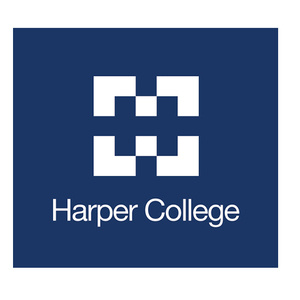
Palatine, Illinois
Student-to-Faculty Ratio: 19:1
Named after the very first president of the University of Chicago, Dr. William Rainey Harper, Harper College is a public community college located in Palatine, Illinois. The school has more than 50 transfer options to allow students to earn their associate degrees before transferring to a four-year university or college to complete their bachelor’s degree. This trade school also offers more than 40 career programs that grant certificate programs or associate degrees. These programs usually last between sixteen weeks and two years.
All educational programs, courses, distance learning programs, and counseling services at Harper College are accredited by the Higher Learning Commission. This skilled trade school is bent on making education accessible to anybody and celebrates collaboration, diversity, excellence, and respect.
To embody its mission, the school offers borrowed laptops to students, online learning, summer school, and adult learner initiatives, including international or undocumented students. Thus, it’s safe to say that there is something for everybody in school.
Harper College has a number of credit certification programs in a variety of fields. From air conditioning and refrigeration service to basic welding, bread and pastry arts, and a licensed practical nurse program, the technical skills needed for trade jobs are mostly learned from Harper College.
Harper College is one of the three community colleges in the nation to be named a Leader College of Distinction by Achieving the Dream (ATD), a national nonprofit that is dedicated to improving community colleges as hubs of mobility and equity in their communities. It was first awarded in 2020 and has rectified its status this year.
Net Price:
$135.50 per credit hour (in-state), $392.50 per credit hour (out-of-state)
Stanly Community College
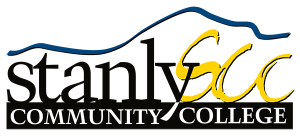
Albermarle, North Carolina
Student-to-Faculty Ratio: 13:1
Stanly Community College is considered a superior trade school in North Carolina. For the past four decades, this public community college in Albermarle, North Carolina, offering more than 27 programs and degrees in business, health, engineering, computers, public service, and college transfer degree.
Every year, this trade school enrolls an average of 10,000 students. The school is SACSCOC-accredited. Stanly Community College also offers online students resources via the school’s web-based platform called CANVAS. This platform is also used for their online courses and programs.
Part of the driving force for the success of Stanly students is CANVAS’ self-service feature, where students get to create plans, map out their learning goals, and update their schooling on the platform. This also acts as a communication tool for everybody so they can easily get in touch with advisors and classmates.
Stanly Community College offers eight trade school programs for students who wish to secure high-paying trade jobs right out of college.
- Automotive
- Electrical Lineworker
- HVAC
- Machining
- Production Technician Training
- QMS Roadway Recertification
- Welding
Stanly Community College is open to international, local, and military students.
Net Price:
$158.75 per credit hour (in-state), $350.75 per credit hour (out-of-state).
San Jacinto College

Pasadena, Texas
Student-to-Faculty Ratio: 20:1
San Jacinto College is located in one of the most populated cities in the Houston metropolitan area. This public community college, established in 1961, was originally composed of the Independent School Districts (ISD) of Channelview, Galena Park, Deer Park, La Porte, and Pasadena.
For over sixty years, this school has helped students successfully land trade school careers through its associate degree programs, continuing education, online programs, and other degree and certificate programs. Students at this technical school can explore eight different areas for students to make their educational pathway.
The continuing and professional development pathway in the trade school program gives different options for workforce development, community programs, job training, and consulting and corporate training. What’s great about San Jacinto College is its multiple campus locations. It has six locations around Texas; all provide the core mission of this institution, which is community enrichment through education.
San Jacinto College offers Continuing and Professional Development programs with a variety of noncredit courses for lifelong learning and workforce training. The courses offered will keep students up to date on the latest technologies in manufacturing, health care, petrochemical, maritime, and aerospace.
The school’s applied technologies and trades department offers ten program streams that will help students with the knowledge, power tools, and technical skills needed to thrive in the skilled trades industry. Program streams include:
- Applied Technologies and Trades
- Auto Body Collision
- Automotive
- Construction
- Diesel
- Electrical/Electronics
- HVAC/Refrigeration
- Motorcycle Riders Course
- Truck Driving
- Welding
Net Price:
$83 per credit hour (in-state), $144 per credit hour (out-of-state), $223 per credit hour (international/non-Texas residents)
Northcentral Technical College

Wausau, Wisconsin
Student-to-Faculty Ratio: 11:1
Northcentral Technical College, located in Wausau, Wisconsin, is a public community college that offers several education options to its surrounding community. This vocational school awards over $425,000 in scholarships every year, making it the most affordable option for students looking to begin their journey in vocational programs and land high-paying jobs.
NTC has partnered with more than 50 private and public universities in Wisconsin. They also offer vocational programs to those who are interested in learning technical skills and job training for a future trade school career. The school has over 190 programs in technical diplomas, general education, and associate degrees.
Northcentral Technical College offers technical diplomas to prepare students for trade school jobs. These technical programs primarily focus on hands-on learning and job training of skills desired and required by possible employers in the trade industry.
Some technical diplomas of this technical school also serve as technical diplomas, which means that the credits students earn can be directly applied toward other technical diploma or associate degree program options so they can advance their education and improve their earning potential and career options.
Common technical diplomas include Advanced EMT, Basic Machining, Healthcare Receptionist, Digital Internet Marketing, Quickbooks Specialist, and many more.
Net Price:
$143.45 per credit hour (in-state), $215.18 per credit hour (out-of-state)
Minnesota State Community and Technical College

Fergus Falls, Minnesota
Student-to-Faculty Ratio: 18:1
The Minnesota State Community and Technical College is a public community and technical school with multiple campuses in Minnesota. A member of the Minnesota State College and University system, this trade school offers more than 70 liberal arts and career programs on its campuses. It also provides more than 25 online majors and programs through its eCampus.
An excellent trade school in Minnesota, it offers high school dual credit programs, workforce development training, on-the-job training, and associate transfer degrees with almost 50 university partnerships. This vocational school offers academic advising to students and job training to prepare them for high-paying jobs in the trade field.
Its most extensive programs include nursing, liberal arts transfer, certificate programs and diplomas, business, and radiologic technology. They also offer unique programs like equine science, electrical line worker, power sports technology, medical laboratory technician, American Sign Language, and entrepreneurship.
Minnesota State Community and Technical School have several trade programs, including construction management, cosmetology, diesel equipment technology, early childhood, and HVAC refrigeration, among others.
On top of the school’s variety of student resources, this vocational school also offers several online programs across its entire range of pathways. Thus, whether you are a workforce development or transfer-bound student, you have plenty of options to utilize the online platform.
Net Price:
$180.80 per credit hour, applicable for both in-state and out-of-state students.
Chippewa Valley Technical College
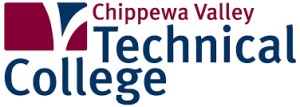
Eau Claire, Wisconsin
Student-to-Faculty Ratio: 13:1
Chippewa Valley Technical College is found in Wisconsin, one of the country’s largest cities. This public technical school is considered one of the best technical colleges in the US, offering more than 120 programs, 15 apprenticeships, and 37 certificate programs.
Aside from helping students land lucrative trade school careers, the primary goal of Chippewa Valley Technical College is to prepare students to acquire the technical skills they need to acquire gainful employment. The school also has continuous learning options where professionals can take individual classes, training, and seminars to be promoted in their present position.
CVTC has a variety of technical education courses designed to help students secure trade school careers. These courses include heavy equipment service technician, funeral service, baking and pastry specialist, office receptionist, and many more.
Most programs at Chippewa Valley Technical College are delivered on campus, although there is a selection of courses and programs available online.
Net Price:
$143.45 per credit hour (Wisconsin and Minnesota residents), $215.18 per credit hour (out-of-state students
Western Technical College

La Crosse, Wisconsin
Student-to-Faculty Ratio 9:1
Located in La Crosse, Wisconsin, Western Technical College is a public school that offers technical education. It serves 11 counties and enrolls over 5,000 students, and is a member of the Wisconsin Technical College System.
Western Technical College has about 100 programs in associate degrees, certificates, and workforce and professional development training. The school uses multiple pathways toward education, though this will depend on the students and their educational goals.
This vocational school also provides apprenticeships so students will have the chance to learn trade school careers while doing their trade school programs. The school is also one of the very first technical colleges offering on-campus housing. Western Technical College is proud of its personal learning environment that promotes smaller classroom sizes.
Western Technical College offers a variety of technical diplomas to help students prepare for trade school careers. Some of the popular trade school programs include:
- Basic Welding
- Automotive Technician
- CAD (Computer Aided Design Technician
- Early Childhood Professional
- Digital Marketing Specialist
- Medical Assistant
- Welding and Fabrication
Net Price:
$146.20 per credit (both for in-state and out-of-state students)
Waukesha County Technical College

Waukesha County, Wisconsin
Student-to-Faculty Ratio: 19:1
Waukesha County Technical College is a public community technical school located in Waukesha County, Wisconsin. It is an active part of the Wisconsin Technical College System and a Higher Learning Commission-accredited school offering at least 150 technical diplomas, program degrees, apprenticeships, and certificates that lead to some of the highest-paying jobs.
All the trade school programs and vocational programs are structured to train students and prepare them for the skilled trades industry, where they can secure high-paying jobs in the future.
The school has long-standing transfer agreements and partnerships with four-year universities. Through these partnerships, students are given access to various academic resources like academic advising, career development services, and a thriving campus environment.
High school students are also given dual credits to they can earn college credits before they can obtain their high school diploma.
Waukesha County Technical College offers technical diplomas to prepare students for trade school jobs. Programs include:
- Nursing Technician
- Baking and Pastry Production
- Front-End Web Development
- Metal Fabrication/Welding
- Human Resource Professional
- Computer Programming
Net Price:
$143.45 per credit (in-state), $215.18 per credit (out-of-state).
Frequently Asked Questions
Are trade schools worth it?
This will generally depend on your goals, budget, and personal circumstances.
Trade schools deliver cost-effective routes to high-paying trade jobs. Potential salary and job prospects will vary, depending on your preferred trade school programs. Other factors that significantly affect the type of trade jobs available include geographic location, employer, industry, and level of previous experience.
What is the average trade job salary?
Salaries for degree-based careers from professionals with higher education are better than those for trade-based careers. However, some products of trade schools earn some of the highest-paying trade jobs than people might expect. Once they complete specialized training, tradespeople can increase their earning potential, especially when they work in niche fields.
The location also plays a huge influence on trade job salaries, as some regions and states offer higher-than-average salaries because of demand, cost of living, state requirements, and many more factors. Areas with higher popular densities usually pay more compared to rural areas.

